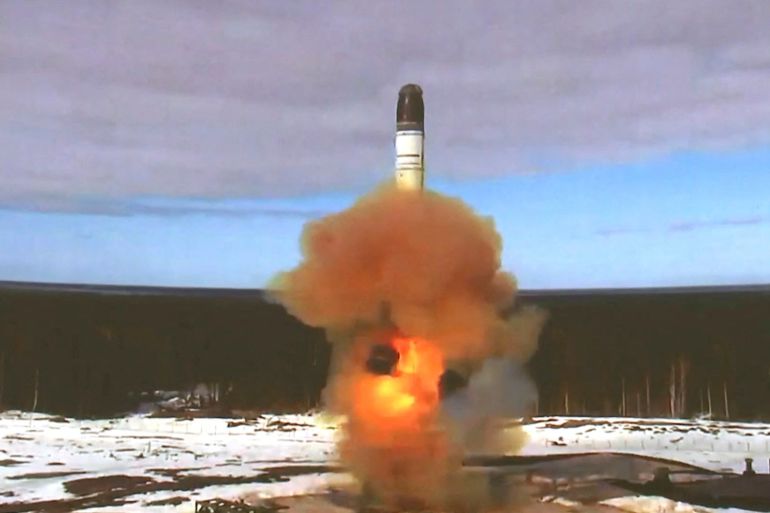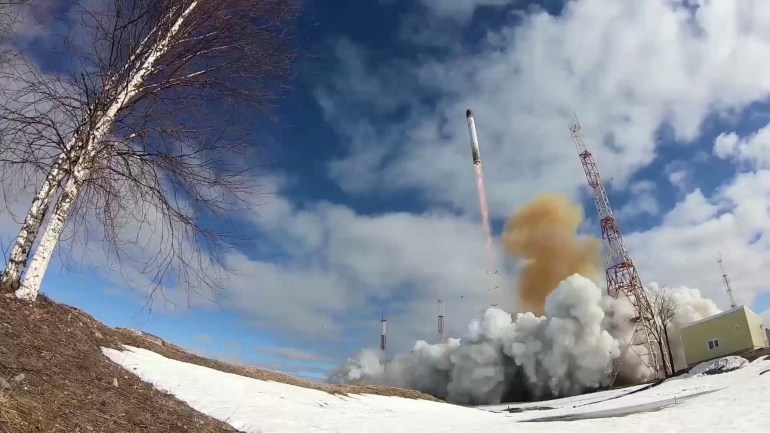Russia to deploy new intercontinental nuclear missiles by autumn
The Sarmat missile can carry up to 15 nuclear warheads and has a range of 35,000km (22,000 miles).

Russia plans to deploy its newly tested Sarmat intercontinental ballistic missile, which is capable of mounting nuclear strikes on the United States, by the autumn.
Dmitry Rogozin, head of the Roscosmos space agency, said on Saturday that the target deployment date for the new missile was an ambitious one.
Keep reading
list of 4 itemsThe chain of command for a potential Russian nuclear strike
The Russia-Ukraine war: An opportunity for nuclear disarmament?
Russia warns of nuclear deployment if Sweden, Finland join NATO
“We plan to do it no later than autumn,” he told the Rossiya 24 TV channel.
Russia reported its first test launch of the Sarmat on Wednesday. Western military experts say more time is needed before the missile can be deployed.
Rogozin said the launch of the Russian “super weapon” was an historic event that would guarantee the security of Russia’s children and grandchildren for the next 30-40 years.
The missiles will be deployed in the Krasnoyarsk region of Siberia, about 3,000km (1,860 miles) east of Moscow, and placed at the same sites and in the same silos as the Soviet-era Voyevoda missiles they are replacing, something that would save “colossal resources and time”, Rogozin said.
This week’s test of the new intercontinental ballistic missile marks a show of strength by Russia at a time of increased tensions with the US and its allies over the continuing war in Ukraine.
The Sarmat’s range, which according to some experts is as much as 35,000km (22,000 miles), allows it to fly the long way around to its intended target, bypassing likely radar and missile defence systems, and striking from an unexpected direction.
A Sarmat missile can carry up to 15 nuclear warheads.

Russia has also developed hypersonic missiles such as the Kinzhal (Dagger), and is the first country to use them in combat in the continuing Ukraine war.
Increasing risk
The risk of nuclear war has increased since Russian President Vladimir Putin launched his invasion of Ukraine on February 24, leading Western nations to impose severe economic sanctions on Russia.
After Wednesday’s test launch, Putin said the Sarmat could overcome any missile defence system and would make those who threaten Russia “think twice” about doing so.
Dmitry Medvedev, deputy chairman of Russia’s security council, warned earlier this month that if Sweden and Finland joined NATO, Russia would deploy nuclear weapons and hypersonic missiles in its Kaliningrad exclave, which is sandwiched between Poland and Lithuania.
The Pentagon described the Sarmat test as “routine” and said it was not considered a threat to US security.
In March, United Nations Secretary-General Antonio Guterres warned that the prospect of nuclear conflict “once unthinkable, is now back within the realm of possibility”.